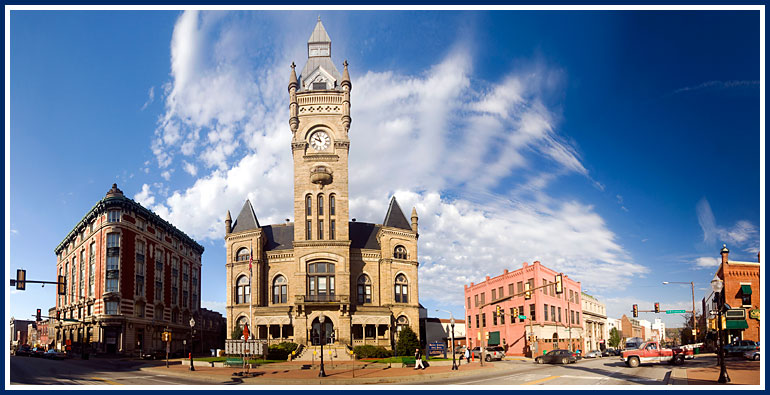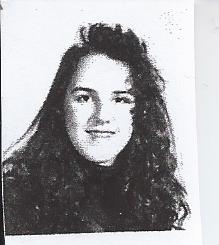I can drive, with moderate success, in most major American cities.
The D.C. beltway? No problem. I even go the right direction, most of the time. Los Angeles to Ventura on the 101? Done it with (extra points!) a puking child in the backseat. Chicago? Boston? Philadelphia? Check, check, check, though I always wonder why the Philly drivers are so mean.
However.
There is one city, one very small city, in which I consistently drive the wrong way down one-way streets, miss stop signs, and drive slower than the speed limit, trying to find my way. And that would be:
Butler, Pennsylvania. Population 13.757.
My hometown.
I noticed this strange phenomenon a few years ago. One day, after driving the wrong way on a street near my former elementary school, I pulled over, berating myself and thanking God that no one had been coming the other way. How could I be so lost in a place that was so familiar? And that’s when I realized my problem.
I knew how to walk these streets, not drive them.
You see, I was one of those people who wanted one thing from adulthood: to get out of my hometown . It was too small. Too ingrown. Too boring. And so, as soon as I could, I left. In my small gold Nissan I began racking up the miles. College was a three hour drive. North Carolina, where I worked one summer, was nine hours. I did not drive to Northern England, but I lived there for a year, wearing out my EuroRail pass along with my big green backpack.
After college I surprised myself by returning to Western Pennsylvania, but it was Pittsburgh, not Butler, where I found my first job and my first post-college apartment. Pittsburgh is only an hour drive from Butler, but it seems much further. There are ethnic restaurants other than the americanized chinese buffet, people who aren’t white, and community events that don’t involve gun raffles or high school sports teams.
I’ve been in Pittsburgh for fifteen years now, and it can be easy to roll my eyes at my hometown.
But that wouldn’t be fair.
That day in the car, when I realized that I knew how to walk but not drive in my hometown, I also realized that I have never lived as a grown-up in Butler, Pennsylvania. Could it be that my experience there seems limited because I was, um, ten? Could it be that I still feel ambivalent and awkward because my culminating experience was in high school? These were not my easiest years.
And what is beginning to open up in me is not a desire to return to my hometown (no, I like my Indian food too much), but a sense of grace and openness to a place that was once too familiar. I can take my kids to the Butler Farm Show. I can enjoy local marching bands at the Christmas parade, send my husband to hunting camp, and read the local newspaper without mocking it (much).
Because when it comes down to it, I just don’t have as much to prove as when I was fifteen.
And I don’t use nearly as much hairspray either.

mmmmm….Indian food!
Lovely piece!–rich in its simple, relatable images! Your writing is full of resonance which I enjoy so much!
As a Butlerite (not born and raised, but having spent more of my life here than where I grew up) and in reading your blog on growing up in “Butler”, I was initially sad for your struggles, your discontent. In some way I felt responsible for that. That I had passed down some of those traits, the lens through which life is viewed (which I’m sure to some degree I have). I can see so much of the way I handled struggles, the way I looked at life. And I continue, even to now to revert back, to go to that “default setting”. We want to blame our restlessness, our discontent on the externals (where we grew up, what happened to us, what kind of parents we had, our physical appearance and abilities), which may or may not be true. “Our” perspective. Our perspective, our thoughts about who we are instead of God’s. Thank you God, that you can change that history, that you can change our perspective as we surrender our lives to you. That is my prayer. And as I am reminded forgiveness is a big part as well, we forgive others because of how much we have been forgiven, the lavish mercy and grace of God to us.
I was also thinking . . .about the memories that your girls have coming to Butler . . . the place where Nana and Papa live, where they stay overnight, where they pick blueberries in the summertime. Butler is a good place for them!
I remember you telling me once that you liked getting out of the city and coming to Butler, that you loved to come because you could see the stars. And as I was getting into bed the other night, I looked out the window to see the beautiful light show of the stars. Orion’s Belt, the Dippers, and all the other constellations. . . as clear as a bell. We really do have nice stars in Butler!
Absolutely. I think that a big part of why we are doing this blog is to counteract those feelings of discontent or restlessness, to look around and say, ‘This is good. This is a gift. Right here and right now.’ And I suppose that this contentment can be retroactive, even when looking back at awkward seasons like high school. 🙂
And yes, I do miss the stars. Quite a bit.
Oh Jen, I love this piece! Believe it or not, this woman who was an adolescent in the early seventies, can identify with your yearning to fly the coop of a small town. And I did it! And like you, I can look back over the past forty years and see how much of who I am was nourished there. Sometimes grace shows up in my rear-view mirror. Thank you!
Grace often shows up in the rear-view mirror. What’s up with that? 🙂
Jen, I love this post, in part because I can relate to it so much! It sounds like our small hometowns were very similar, and that our desire to escape them was similar, too. But what I also love about what you’ve written is that you’ve uncovered a more universal truth: Part of growing up is about our need to escape the limited, ambivalent, and awkward experiences of childhood and adolescence. We undoubtably attach those feelings and experiences to a place (or places), even if we didn’t grow up in a “boring small town.”
Thanks Kristin! Writing this made me wonder what it is like to never move from the place you grew up. How do people move beyond their “limited, ambivalent, and awkward experiences of childhood and adolescence” (you put it well!) if they stay in the same physical place? I think that it’s definitely possible, but I’d love to hear stories.